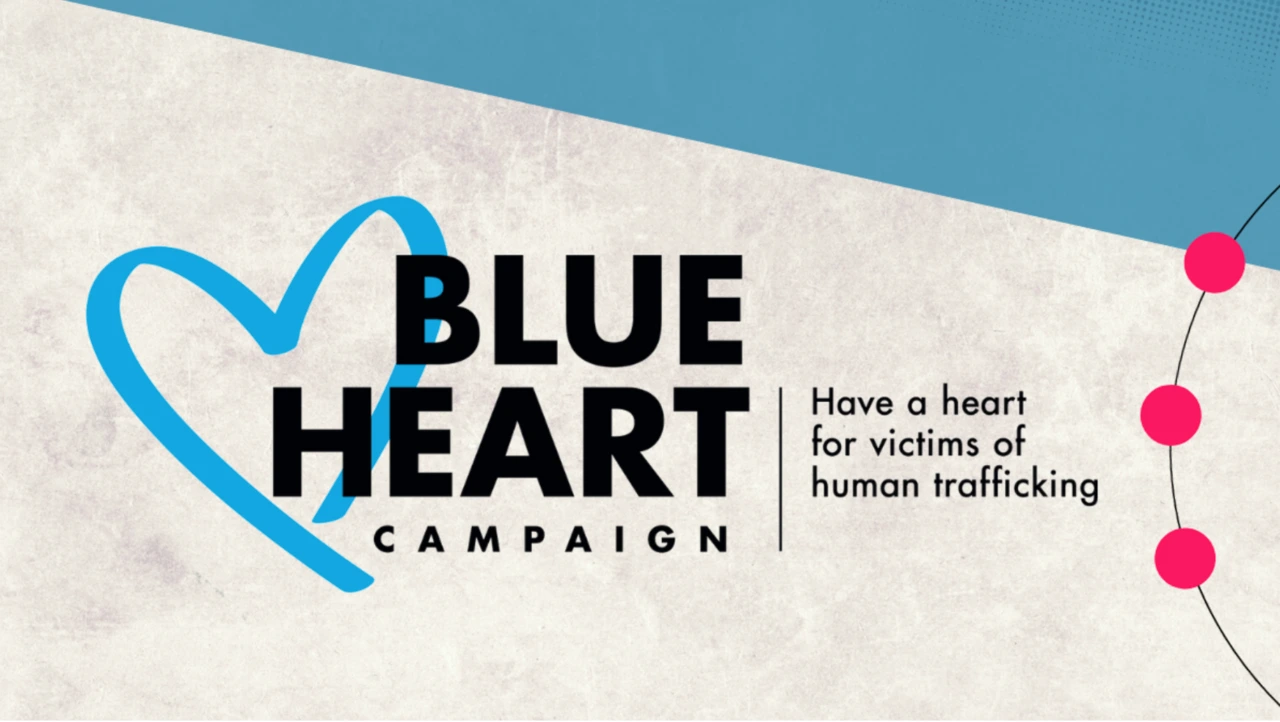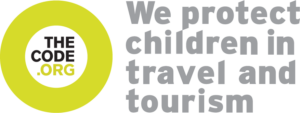By MaryAnne Bobrow CAE, CMP Fellow, CMM

Human trafficking is a systemic problem that must be stopped. It is imperative that the business events industry does everything it can to raise awareness and leverage our collective power to do our part in the fight against human trafficking. The first step on this quest is to be informed, and a comprehensive resource to leverage is the ‘Blue Heart Campaign,” led by the United Nations Office on Drugs and Crimes (UNODC), which “raises funds to support victims, increase awareness of the dangers of human trafficking and to prevent further cases.”i Civil society organisations, the private sector, and communities have a vital role in raising awareness, providing support services, and advocating for policy reforms.
Increasing awareness of the gravity of human trafficking is beneficial for your community, city, state, region, province, country, and the world. Human trafficking exists in multiple forms and is broken down by UNODC into eight major categories:
- Forced labor – 80%.
- Sexual exploitation – 7&
- Mixed forms – 3%
- Criminal activity – 2%
- Forced marriages – 9%.
- Begging – 7%
- Baby selling –3%.
- Removal of organs – 2%
The latest statistical data available from UNODC is the Global Report on Trafficking in Persons 2022 — a detailed 186-page report. It is estimated that globally in 2023, traffickers’ estimated profits were
$150 billion, realized from victimizing 25 million people of all ages.

Another global organisation which focuses primarily on human trafficking against children is ECPAT Internationaliii whose primary goal is to “end the sexual exploitation of children.” In the United States, ECPAT’s organisation recently changed its name to PACTiv. Throughout the globe, ECPAT organisations operate in more than 100 countries
 A third organisation is often confused as being a part of ECPAT but is its own organisation based in Thailand. The Code “provides awareness, tools and support to the travel and tourism industry to keep children safe. Travel and tourism companies (both supplier and planner) make a pledge to adhere to the Code and to provide annual reports on activities engaged in by the companies throughout the year. Companies large and small belong to the Code and proactively contribute towards increasing awareness in the industries in which we work.
A third organisation is often confused as being a part of ECPAT but is its own organisation based in Thailand. The Code “provides awareness, tools and support to the travel and tourism industry to keep children safe. Travel and tourism companies (both supplier and planner) make a pledge to adhere to the Code and to provide annual reports on activities engaged in by the companies throughout the year. Companies large and small belong to the Code and proactively contribute towards increasing awareness in the industries in which we work.
Awareness in helping to end all forms of human trafficking requires vigilance in keeping up to date on what changes traffickers are making to avoid capture and prosecution. For those of us who advocate against trafficking in all forms, our best approach is to be trained by national/global organisations in programmes to ensure we have the latest information on awareness and, through the organisations we volunteer for, to ensure that our audiences have current information. Throughout the 20 years I have been advocating against human trafficking, we have consistently cautioned others: Do not try to personally engage a trafficker or rescue a survivor. We are not vigilantes; our role is to see something (observe), say something (report to appropriate authorities), and do something, (i.e., if you are on an airplane and, because of your training, you recognise the signs of human trafficking, you would walk to the front of the plane and report it to Purser. The Purser notifies authorities on the ground and once the plane lands, law enforcement boards the plane and removes the trafficker)
Years ago, I sat in a PCMA general session in San Diego, California, and listened to David Peckinpaugh, then CEO of the San Diego Convention and Tourism Bureau, now CEO of Maritz, discuss human trafficking and the need for the hospitality industry to become involved in anti-human trafficking awareness. Since that time, industry hotel brands, other supplier and planner organizations have joined the efforts in many ways, including education programmes to train the multitude of employees in housekeeping, front desk, and other positions who could observe potential trafficking situations.
More than seven years ago, I joined the first Meeting Professionals International Global Anti-Human Trafficking Committee and remain a proud member of that committee today. The Events Industry Council is working to increase its visibility as part of its Sustainability standards, principles, SEPC (certificate program) and much more. To learn more about these efforts, visit https://insights.eventscouncil.org/Sustainability.
Take a moment to learn more about the fight against human trafficking and join your fellow industry professionals to increase awareness of human trafficking, and learn how we can all contribute to its end.
